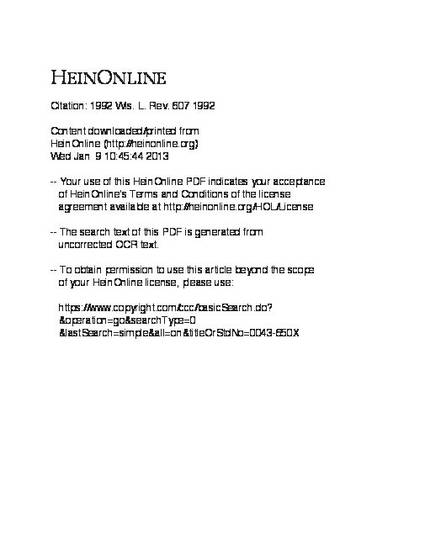
- Law and
- Securities Law
After decades of confusion, in 1991 the Supreme Court articulated a uniform federal limitations period for securities fraud claims grounded on Rule 10b-5. The court further held that the new limitations period was not subject to equitable tolling.
This Article argues that the court wrongly conflated into a singular equitable tolling doctrine two historically and normatively distinct bases for tolling a limitations period. Only claims of securities fraud uncomplicated by a later cover-up of the original fraud are free from tolling principles. The limitations period for fraud which is subsequently concealed by an original wrongdoer remains, because of the still viable doctrine of fraudulent concealment, subject to tolling.
This result flows from the longstanding normative preference for denying repose to a wrongdoer who camouflages fraud, lest a perverse incentive to engage in a post-transactional cover-up be created. This preference-long-housed in the equitable and common law doctrine of fraudulent concealment-was endorsed by the Supreme Court in several decisions and nowhere was abjured by Congress in enacting the federal securities laws. The Supreme Court's recent decision, not having appreciated the distinctive doctrinal and normative grounds for tolling a limitations period, likewise did not renounce the doctrine of fraudulent concealment. At a more general level, the Article insists that only by respecting the subtleties of legal doctrine-even at a time of skepticism about doctrine's formal qualities-can the nuances of altered normative assessments be maintained.

Copyright 2012 by The Board of Regents of the University of Wisconsin System; Reprinted by permission of the Wisconsin Law Review.